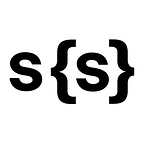The super{set} Entrepreneurial Guild
What We Look For in a Co-founder
Has someone looking to make a key hire ever told you that they are after “coachability”?
Take a look at the Google ngram for “coachability” — off like a rocket ship since the Dot Com bubble, and it’s not even a real word!
Coaching is everywhere in Silicon Valley. We don’t just mean on the hardwood of the Chase Center — whether you’re a techie, a yuppie, a new-age hippie, in SF there’s a coach for you.
Are you an engineer just realizing that sitting for 12 hours a day isn’t conducive to a beach body? Get a fitness coach. Are you a troubled couple trying to make your relationship last? Get a relationship coach. Are you looking to soothe your soul? Surely there is a spiritual coach along the Haight that will sell you a salt crystal or a wellness coach down in Big Sur that will sell you a juice-only crash diet and yoga retreat.
For startup founders who will do anything to make sure their company succeeds, want an extra edge, or maybe are pressured by their Board, all manner of executive coaches and venture capitalists are out there doling out aloof hands-off advice. As we’ve discussed before, that’s not us.
At super{set}, we don’t critique, we found and build — our model is fundamentally about doing. We’ve used coaches, and recommended them to our founders, but don’t get it twisted — we aren’t coaches. We don’t look for “coachability”: we look for dirt under the fingernails.
At super{set}, we lock arms with our co-founders to actually make it so. We show up every day and make each other’s brains hurt. Through our work together, we pass down years of expertise earned as serial founders and successful entrepreneurs. During this process, though, we too want to learn from our incredibly talented and intelligent co-founders. Together, we’re mutual craftsmen with a refined sense of the art of company building, creating something from scratch. super{set} is a guild dedicated to the craft of company building.
In the European medieval era, as the mercantile class burgeoned and the industrial revolution was centuries away, skilled craftsmen joined together in guilds dedicated to protecting and advancing their art. Blacksmithing, stonemasonry, glass blowing, underwater basket weaving — you name it, there was a guild for it. Guilds received and trained talented inductees as apprentices and graduated world-class craftsmen. Their method was not abstract coaching, but hands-on, side-by-side crafting.
This has been our experience as serial founders: you start as a puppy, someone takes you under their wing, you learn through trial and error, and eventually, by dint of hard work, you become a master. We’ve seen that there is something fundamentally learnable about the art of company building, given the proper temperament. The word “coaching,” with its connotation of detached counseling, is woefully inadequate to describe what we do in practice.
At super{set} then, we aren’t on the lookout for “coachability,”, we’re on the lookout for a core disposition that will eventually make a world-class company builder. Here are the four things we look for in our co-founders and why:
Grit
Company-building from scratch is not for the meek of spirit. We look for co-founders who can show up and take a (figurative) punch. Founders need to be able to bend, flex, and revise. Founders will be told “no” dozens of times by the customers they are trying to get onboard: founders have to be steadfast and fierce in response. Grit shows us that our co-founders have staying power.
Humility
Startups are built on strong convictions, loosely held. We look for co-founders that recognize they don’t have all the answers and are shameless in asking for help. Founders need to be flexible enough that they can acknowledge mistakes and course-correct. Humility shows us that our co-founders recognize that they don’t know everything and are thus looking to learn.
Organized Thinking
We look for co-founders that can put things in their places, and categorize and name them. You must be able to say “my flux capacitor is called Fu and it gets these inputs and outputs” — to describe how things work in a way that is accessible is essential. Organized Thinking shows us that our co-founders can take complicated concepts and connect the dots to distill them into simple terms in order to architect a solution.
Clock Speed
Startups move fast and the product build-out is often about combining new information in novel ways. We collaborate with co-founders who can quickly process new information being thrown at them. Founders have to be able to keep up with us, but it is a two-way street: when you are first to the goal, you have to bring us along with you. Clock speed shows us that our co-founders can both keep up with us and bring us along for the journey.
Interviewing Co-founders
How do we tease out these qualities and build conviction in a co-founder candidate? Every guild has its entry stakes. Here’s the approach you can expect if you interview with us:
- We dig into prior experience or achievement: previous startup experience can indicate grit
- We interview widely across the team: how a candidate behaves with our least experienced super{set} team member versus Tom and Vivek can tell us much about humility
- We employ experiential interview tactics: the most important part of our interview process is the “jam session” where we actively assess a candidate’s organized thinking and clock speed
Think you have what it takes to join our guild dedicated to the art of company building? Take a look at our open positions here, or reach out directly.
